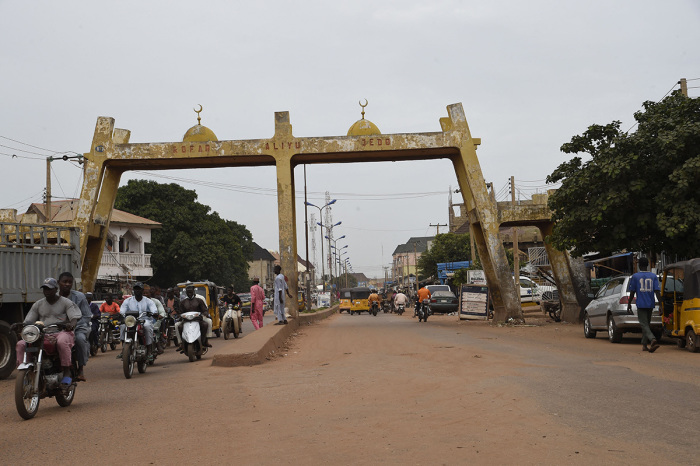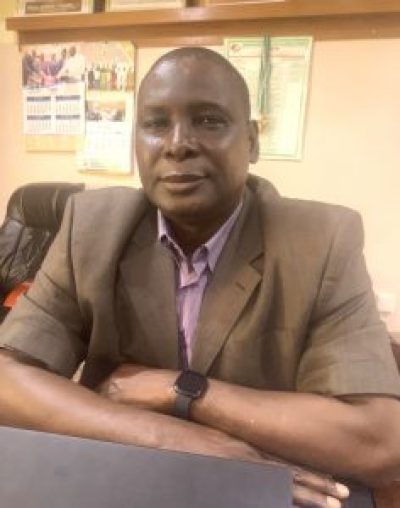Terror attacks force denomination to close 70 churches

ABUJA, Nigeria — Terrorist attacks have forced a denomination to close 70 churches in central Nigeria’s Plateau state, while in the country’s northwest, Christians are celebrating the release of a kidnapped priest.
The Rev. Amos Mohzo, president of the Church of Christ in Nations (COCIN), told Christian Daily International-Morning Star News that attacks by Fulani herdsmen and other terrorists have forced 70 congregations in Plateau state’s Mangu and Bokkos counties to stop services in the past two years.
Previous Christmas attacks last December directly affected COCIN congregations, he said.
The Rev. Amos Mohzo, president of the Church of Christ in Nations | Christian Daily International-Morning Star News

“Our members were killed, people were killed, people lost their houses, many [were] traumatized and we couldn’t do anything,” Pastor Mohzo said. “We were stranded, but we had to face the challenge, and Christmas was celebrated by displaced Christians in Internally Displaced People’s (IDPs) camps in spite of the tragedy.”
In the Mangu area, attacks forced at least 40 COCIN congregations to close, he said.
“Most of these members of our church were displaced, and many of them are living in camps outside their communities,” Mohzo said. “Most of these Christians have been moving here and there trying to survive or find succor.”
In the Bokkos area, the denomination lost “about 30” congregations, he said.
“All our worship church buildings in these communities were burned down by the terrorists,” Mohzo added. “Internally Displaced Christians from these communities are still living in camps outside their communities. And even now, most of them who are farmers are unable to go to their farms.”
In some cases, Christians who have dared to return to their farms have formed communal groups for a greater sense of security, he said.
“Notwithstanding, our displaced church members still find it difficult to go to their farms for productive activities because of ceaseless attacks against them by armed terrorists, herdsmen and bandits,” he said. “With these developments, we have been making efforts to see that our church members who survived these attacks and are living in camps outside their communities are relocated back to their communities. But then, we have to rebuild not just worship buildings, but also their burned houses.”
At the same time, COCIN evangelistic outreaches in northeastern Nigeria have been hindered by attacks by Boko Haram and the Islamic State West Africa Province (ISWAP).
“I’m from the northeast of Nigeria, Gwoza Local Government Area, precisely from Limankara town, and my village is Ngoshe Sama, which is located on the hills,” Mohzo said. “Boko Haram took over the village years back, and they’re still there. So, these hills occupied by Boko Haram terrorists overlook Limankara and Gwoza towns. These terrorists come down from the hills to attack our communities and then retreat into the hills.”
The attacks on June 29 in Gwoza killed and maimed both Christians and Muslims, he said.
“We live together as a community,” Mohzo explained. “However, with the coming of insurgency, the emergence of Boko Haram in Borno state, many of our people have been killed, and others have been driven out and displaced to other areas of Nigeria. Those who have no places to go to had to stay back and make up their minds to die when attacked by the terrorists.”
Life has not been easy for the survivors, he lament ed.
“They cannot go to their farms because of the terrorists, so they depend on Non-Governmental Organizations to support them,” he said. “And with present economic hardship being experienced in the country, the NGOs, too, are unable to cater to these displaced Christians.”
The sheer number of kidnappings has also made it difficult for the COCIN to raise money to pay the ransom demand to release one of its pastors. The Rev. Paul Musa was kidnapped along with his wife by Boko Haram terrorists in March 2023, he said.
“We, as a church, are handicapped, because it is impossible to raise money at all times to pay ransoms to terrorists to secure the release of pastors being held captive,” he told Christian Daily International-Morning Star News. “And this is because almost in all parts of northern Nigeria, our church members and pastors are being kidnapped by terrorists. So, where can we raise large sums of money to get them out from their captors?”
Nevertheless, COCIN leaders have been appealing to individuals and organizations to secure the release of Musa and other church members held captive. Musa and his wife have been held captive for more than a year.
“I was recently in the city of Maiduguri and visited his children,” he said. “They’re traumatized. They pleaded with me to secure the release of their parents, and I told them that if it is within my reach I will not allow their parents to remain in captivity even for one second, but it’s beyond us. The children are always crying, always in tears for their parents. It pains my heart to see these children in this way.”
Boko Haram Islamic terrorists who kidnapped the pastor and his wife in Borno state, northeast Nigeria, in the third week of June threatened to kill him if the ransom wasn't paid within a week.
“The ultimatum issued has now expired, as it’s now more than a week when the threat was issued by the terrorists, and nothing has been heard from his captors,” Mohzo said. “We are appealing to the captors of Rev. Musa and his wife to please release them. They should have mercy on the couple and release them.”
He said terrorist attacks have also engulfed northwest Nigeria.
“Our churches in the northwest of the country are not spared by terrorists either. Christians in the northwest of Nigeria also suffer the same terrorists’ attacks,” he said. “Evangelization activities have been impeded in this part of the country. How can we deliberately jeopardize and endanger the lives of those called to ministry, when we know that they’ll become targets of terrorist attacks?”
In northwest Nigeria’s Zamfara state, Roman Catholic Priest Mikah Suleiman was released on Sunday after being kidnapped on June 22, according to the church’s Sokoto Diocese. He and church officials failed to reveal who had kidnapped him or reveal the terms for his release.
“I want to thank you for your prayers and support towards my rescue,” Suleiman said in a video released by the diocese on Sunday. “By the grace of God, I’m out from the hands of the bandits.”
Sokoto Diocese Communications Director Pascal Salifu thanked “the authorities and all involved in securing Father Mikah’s release.”
In the Open Doors' 2024 World Watch List of the countries where it's most difficult to be a Christian, Nigeria was ranked No. 6, just as it was in the previous year.
Nigeria remained the deadliest place in the world to follow Christ, with 4,118 people killed for their faith from Oct. 1, 2022, to Sept. 30, 2023, according to the WWL report. More kidnappings of Christians than in any other country also took place in Nigeria, with 3,300.
Nigeria was also the third-highest country in number of attacks on churches and other Christian buildings such as hospitals, schools and cemeteries, with 750, according to the report.
Originally published at Christian Daily International–Morning Star News




























